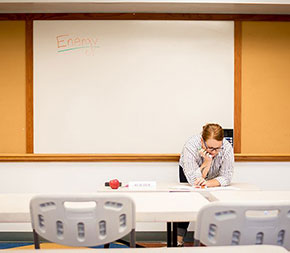Why I Chose Early Childhood Education: A Student Interview

by All Star Staff
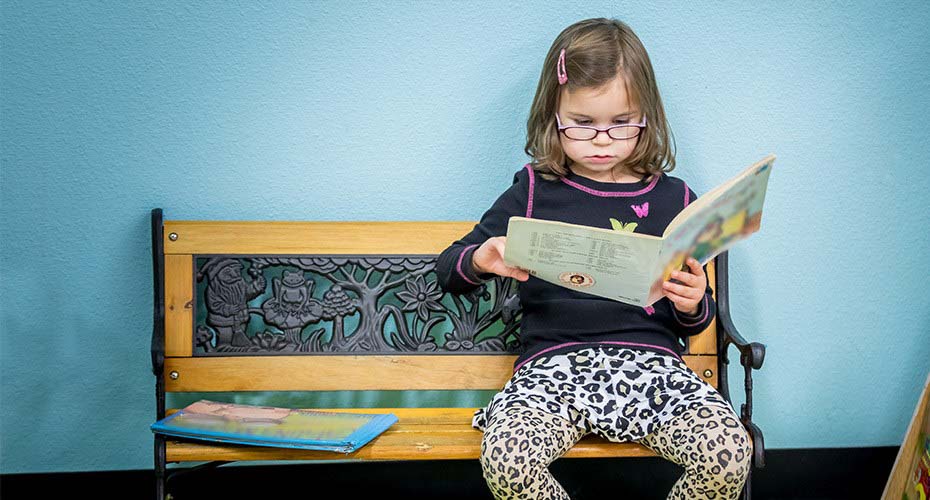
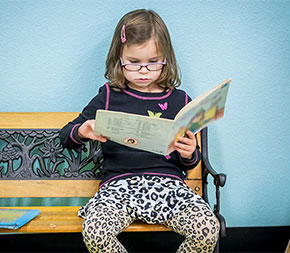
Emily Morgan
Student in early childhood education
Duvall, WA
Emily Morgan has set her sights on an early childhood education career. We interviewed her about her experience as a student to gain insight into the field of early childhood education from the perspective of a future teacher.
Q: What led you to study early childhood education?
A: The field of early childhood education has always been a part of my life. My mother taught K-3 for over 25 years, and my mother-in-law is a children’s librarian. I suppose I am a product of the environment I grew up in. Surrounded by the sounds of the schoolyard, of crayons and glue, I am at home.
A creative at heart, I thought I could crack the gaming animation industry. I took numerous courses in 3D Studio Max, went to all the conferences in San Jose, and in the end (with a new baby girl in tow) decided I really don’t like sitting behind a computer all day. My heart was sick and I realized years after graduating college that I needed to get back to my roots. I was going back home to early childhood education. The only difference is that now I am pursuing the piece of paper that will legitimatize my claim to native land.
Q: What kind of person chooses an ECE career?
A: I think a lot of people when they hear early childhood education visualize a soft ample woman of some 40+ years with a benevolent smile and wildly colored attire. What I find stunning is the diversity among those who are entering early childhood education. Though still heavily female dominated, more men are challenging these conventional roles and bringing with them new insights into teaching. Male teachers often bring alternative ways to teach language and literacy, especially with those children who learn best during gross motor activities.
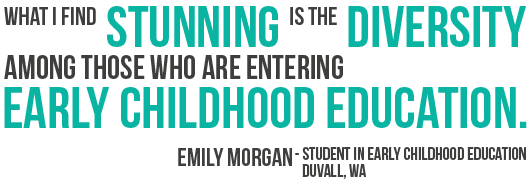
This on top of an ever growing, more culturally diverse and aware teacher base; the typical kindergarten teacher is bringing far more to circle time than ever before. One of my favorite examples of this could be seen in my Language/Lit early childhood education class last fall. Of twenty-five students, there were three who spoke fluent Japanese, two Korean students, one lovely Hispanic lady, two enthusiastic German women, one Muslim student who spoke Arabic, and a young gentleman with a background in music. I doubt you can get a greater mix of students if you tried. This is an exciting time.
Q: What are the rewards of teaching young kids?
A: Nothing can outshine the innocent smile of the child who has just discovered “I can do this!” I think anyone who goes into early childhood education has an empathy chip on overdrive. They can feel what the child feels when they accomplish and when they fail. It is rooting for them when they are so close to the finish line, dusting them off when they fall, listening when they talk, and realizing exploration of the world through their eyes is its own reward.
Anyone who is around young children will notice one thing-just how much they talk to themselves while playing. They bleat and sing, yammer and gabble, chat and prattle such a stream of nonsense that it overflows (most of the time) like a carbonated orange soda, fizzing over your nice, newly ironed suit onto the car floorboard. What to do? How do you preserve such joy, such uninhibited creativity? Well you’re going to have to get wet. Become their scribe, and ask the all important question, “Can I write down your story?” Most children beam at the idea of their “play” being written down like a storybook.
Keep it loose and unobtrusive; remember you are a guest in their world. I am always amazed just how much knowledge children exhibit when I sit and listen. When I write, I preserve that moment not only for them, but for my benefit as well. Social, emotional, cognitive and developmental achievements and pitfalls can be revealed like hidden text within the story. My own daughter gives me a plethora of ideas that I love to illustrate, like “Shirley Curley and his Curly Belly” and “Funky and the Hat.” Nothing beats the mind of a child.
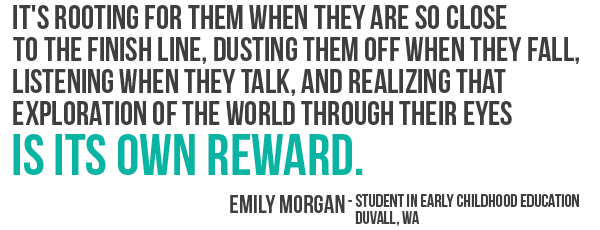
Q: Did you get teaching experience before beginning your ECE career?
A: Early childhood is probably one of the easier fields to find hands-on experience. There are a lot of private schools which require very little education background, most of which can be achieved in a scant few credits through a community college. A lot of colleges provide classroom experience through their own day care facilities on campus. Many early childhood education students find part-time jobs and earn credits through these facilities.
Another great way for students looking for training is through a volunteer program. Many public school systems offer volunteer mentoring programs for anyone interested. Interviewing is easy. Usually they ask for a couple of references and a background check, and you’re good to go. They are usually desperate for volunteers and offer a wide scope of positions from K-12. Volunteers can opt for group classes or one-on-one and specify what subjects they would like to teach (everything from reading to science, and after school activities). The pay is meager, but it provides a good learning resource. Information on these programs can be accessed through the Public School District websites of your choice.
Q: Are there good job opportunities in early childhood education?
A: It is easy to think that the field of early childhood education is limited to teaching alone. Career opportunities vary under the ECE umbrella. From administrative positions for the business-oriented, children’s author/illustrator/animator for the creative, special education, rudimentary child psychology, and sociology, up to postsecondary educator for those who pursue a master’s or PhD, ECE is a large field with many career choices.
For myself, I enjoy working directly with children 4+ years old. I’m very fond of the Reggio Emilia approach and how they introduce art to children. Being an artist, I also find becoming a children’s illustrator very alluring. When I was young, I spent my summers creating bulletin boards, games and backdrops for my mother’s classroom and many of her coworkers. I love to create, and any job that lets me create for or with children is enticing.



